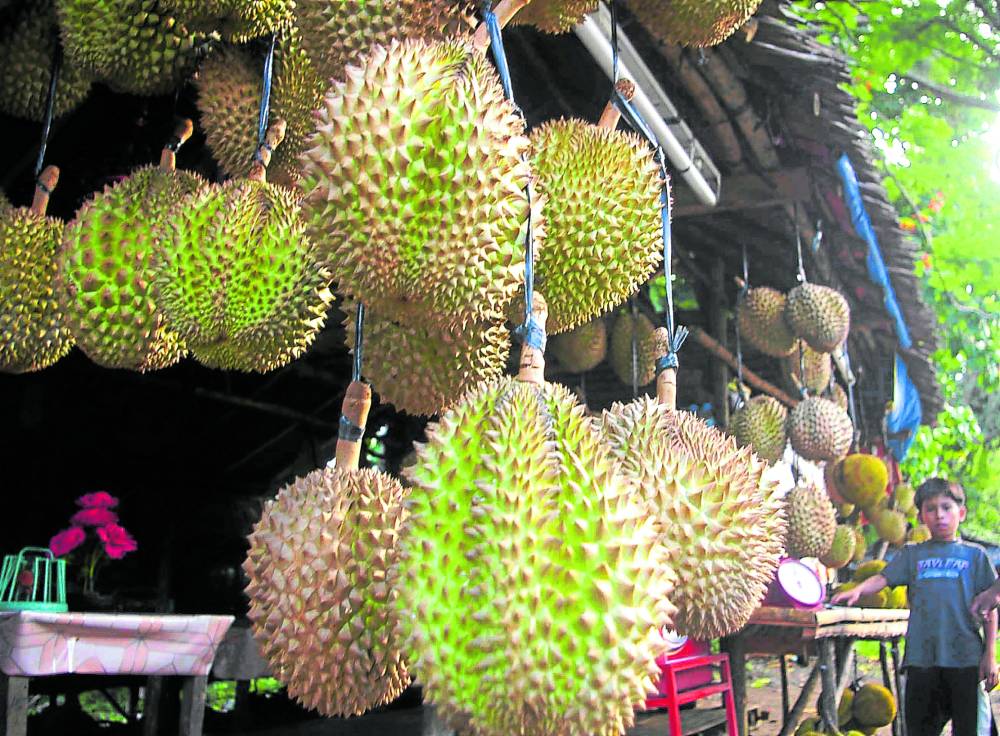Philippines to export $260M worth of durian to China

Durian. INQUIRER FILE PHOTO
The Philippines will export to China $260 million or P14.3 billion worth of fresh durian, also known as the “king of fruits.”
In a statement, the Department of Agriculture (DA) said Chinese companies including Dole (Shanghai) Fruits and Vegetables Trading Co., Shanghai Goodfarmer Group and Dashang Group have committed to purchase this commodity.
Durian will be sourced from registered farms in major durian producing areas of Davao City, Davao del Sur and North Cotabato.
“Moreover, the project is expected to generate at least 10,000 direct and indirect jobs from the bilateral venture,” it added.
The two countries signed earlier the “Protocol of the Phytosanitary Requirements for Export of Fresh Durians from the Philippines to China” that would allow the entry of 50,000 metric tons of fresh durian into the Chinese market.
The DA said it would bolster the production of durian and other high-value crops as during President Marcos’ recent visit to Beijing, it was pledged that China would source $2.09 billion worth of fruits, including coconuts and durian, from the Philippines.
One of the focal points of discussions was China’s importation of durian, said Agriculture Senior Undersecretary Domingo Panganiban. “We are pinpointed as one of the sources that China would like to (get their supply) from and they have allocated $260 million initially to start off the project with the Philippines,” Panganiban said.
“We hope and anticipate that this will be a major breakthrough that we should avail ourselves of and hope that we should be able to maintain a good relationship with China in the long run,” he added.
Regional executive directors are tasked to identify potential areas for expansion and formulate plans to sustain the country’s export of durian.
Regional field offices, in coordination with the Bureau of Plant Industry (BPI) and the DA’s High Value Crops Development Program, will conduct capacity-building activities, ensure the production of market-preferred varieties, develop packing houses and assist in marketing.
Moreover, the BPI will extend support in the accreditation of farms, alongside Philippine Good Agricultural Practices certification and protocol implementation, among others.
